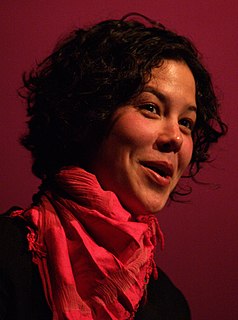A Quote by Justin Simien
Stories teach us empathy. They reveal to us ourselves in the skins of others.
Related Quotes
It is quite beyond me how anyone can believe God speaks to us in books and stories. If the world does not directly reveal to us our relationship to it, if our hearts fail to tell us what we owe ourselves and others, we shall assuredly not learn it from books, which are at best designed but to give names to our errors.
Each of us is comprised of stories, stories not only about ourselves but stories about ancestors we never knew and people we've never met. We have stories we love to tell and stories we have never told anyone. The extent to which others know us is determined by the stories we choose to share. We extend a deep trust to someone when we say, "I'm going to tell you something I've never told anyone." Sharing stories creates trust because through stories we come to a recognition of how much we have in common.
What does it matter, if we tell the same old stories? ...Stories tell us who we are. What we’re capable of. When we go out looking for stories we are, I think, in many ways going in search of ourselves, trying to find understanding of our lives, and the people around us. Stories, and language tell us what’s important.
I believe in empathy. I believe in the kind of empathy that is created through imagination and through intimate, personal relationships. I am a writer and a teacher, so much of my time is spent interpreting stories and connecting to other individuals. It is the urge to know more about ourselves and others that creates empathy. Through imagination and our desire for rapport, we transcend our limitations, freshen our eyes, and are able to look at ourselves and the world through a new and alternative lens.






































